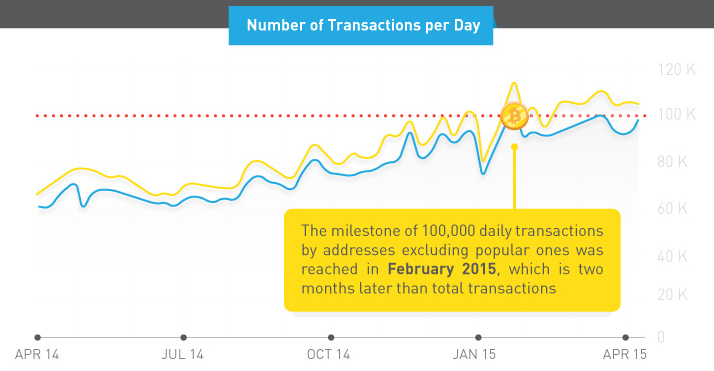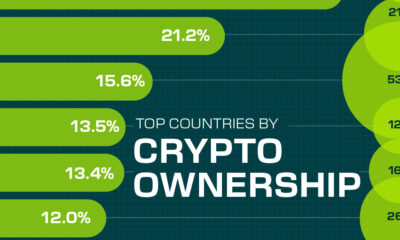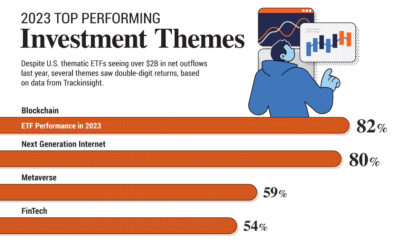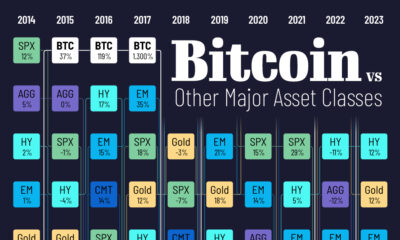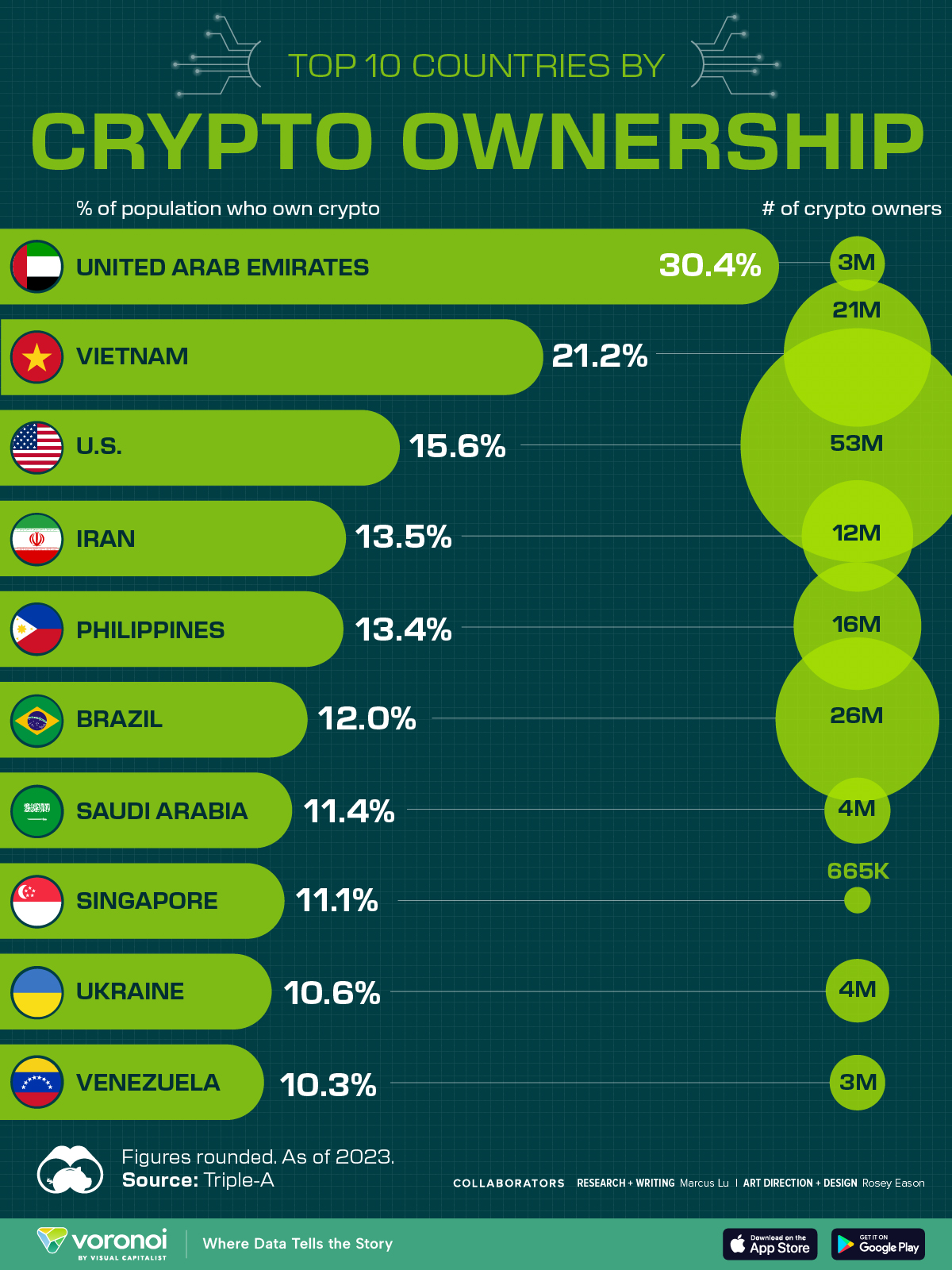Technology
Bitcoin is Finally Becoming an “Everyday Use” Currency

Bitcoin is Finally Becoming an “Everyday Use” Currency
Over the last few years, Bitcoin has gained a reputation as an investment commodity. It has been toted as a method to preserve wealth and to hedge against currency devaluation as bitcoins cannot be “printed”.
This reputation still holds true today. With Greece’s economy on the rocks and the unfolding aftermath of a “no” decision, the bitcoin price has skyrocketed by around 20% in the last month. While Greeks are having difficulties buying the cryptocurrency due to capital controls, Coinbase has reported that buys across Europe have increased 300% as others observe what is happening in Greece.
However, recent transaction data also shows that more bitcoins are being spent on “everyday use” items. Bitpay, which facilitates retail transactions using bitcoins, reports that the number of transactions has increased from 209,420 to 563,568 (from 2013 to 2014). Interestingly, the average order amount decreased substantially from $513 to $281 per order as more people bought more everyday items.
What are people buying with bitcoins? It turns out the list is pretty boring: bedroom sheets, headphones, area rugs, mattresses, coffee tables, sunglasses, and donations to non-profits all help round out the top ten items bought on Overstock.com. With the cryptocurrency becoming more ubiquitous as shown by reaching the 100k daily transaction mark (not including popular addresses) this year, it is being used more and more for regular ecommerce purchases.
As we’ve previously shown with technology hype cycles, it takes some time for new innovations to develop the infrastructure to reach their hyped potential. There is evidence that shows that cryptocurrencies and Bitcoin are along this path. Even though they are primed to change the world and spur even more innovation, the world has not yet been ready. It seems to be getting closer, though.
Original graphic by: Coupofy
Technology
Countries With the Highest Rates of Crypto Ownership
While the U.S. is a major market for cryptocurrencies, two countries surpass it in terms of their rates of crypto ownership.
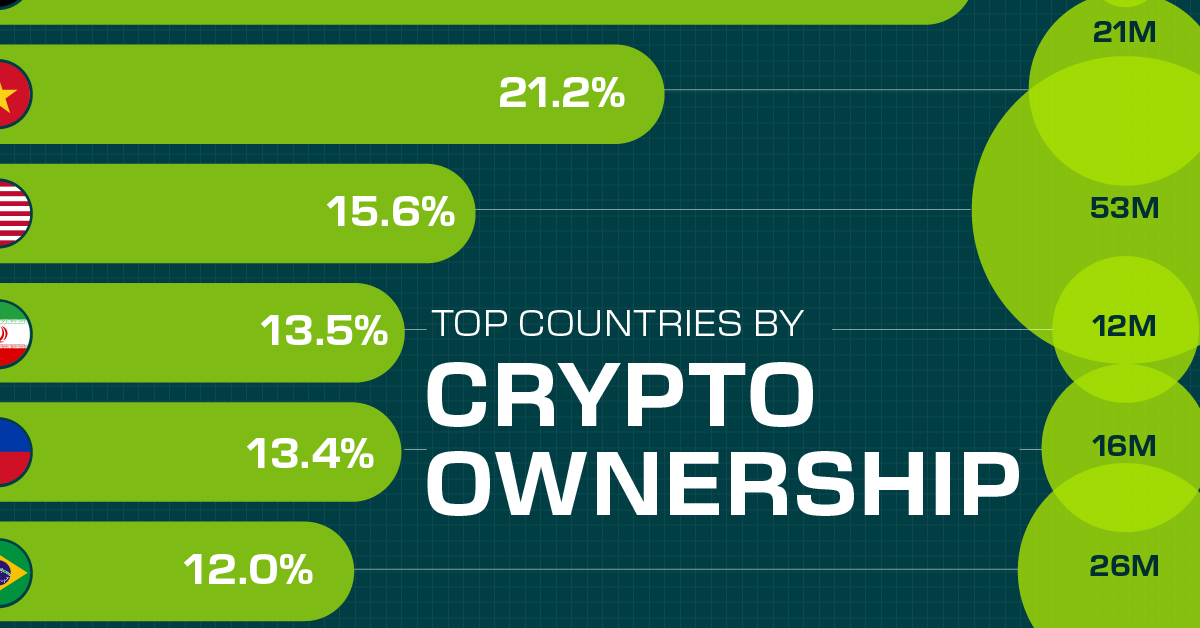
Countries With the Highest Rates of Crypto Ownership
This was originally posted on our Voronoi app. Download the app for free on iOS or Android and discover incredible data-driven charts from a variety of trusted sources.
This graphic ranks the top 10 countries by their rate of cryptocurrency ownership, which is the percentage of the population that owns crypto. These figures come from crypto payment gateway, Triple-A, and are as of 2023.
Data and Highlights
The table below lists the rates of crypto ownership in the top 10 countries, as well as the number of people this amounts to.
| Country | % of Population Who Own Crypto | # of Crypto Owners |
|---|---|---|
| 🇦🇪 United Arab Emirates | 30.4 | 3M |
| 🇻🇳 Vietnam | 21.2 | 21M |
| 🇺🇸 U.S. | 15.6 | 53M |
| 🇮🇷 Iran | 13.5 | 12M |
| 🇵🇭 Philippines | 13.4 | 16M |
| 🇧🇷 Brazil | 12 | 26M |
| 🇸🇦 Saudi Arabia | 11.4 | 4M |
| 🇸🇬 Singapore | 11.1 | 665K |
| 🇺🇦 Ukraine | 10.6 | 4M |
| 🇻🇪 Venezuela | 10.3 | 3M |
Note that if we were to rank countries based on their actual number of crypto owners, India would rank first at 93 million people, China would rank second at 59 million people, and the U.S. would rank third at 52 million people.
The UAE Takes the Top Spot
The United Arab Emirates (UAE) boasts the highest rates of crypto ownership globally. The country’s government is considered to be very crypto friendly, as described in Henley & Partners’ Crypto Wealth Report 2023:
In the UAE, the Financial Services Regulatory Authority (FSRA-ADGM) was the first to provide rules and regulations regarding cryptocurrency purchasing and selling. The Emirates are generally very open to new technologies and have proposed zero taxes for crypto owners and businesses.
Vietnam leads Southeast Asia
According to the Crypto Council for Innovation, cryptocurrency holdings in Vietnam are also untaxed, making them an attractive asset.
Another reason for Vietnam’s high rates of ownership could be its large unbanked population (people without access to financial services). Cryptocurrencies may provide an alternative means of accessing these services without relying on traditional banks.
Learn More About Crypto From Visual Capitalist
If you enjoyed this post, be sure to check out The World’s Largest Corporate Holders of Bitcoin, which ranks the top 12 publicly traded companies by their Bitcoin holdings.
-
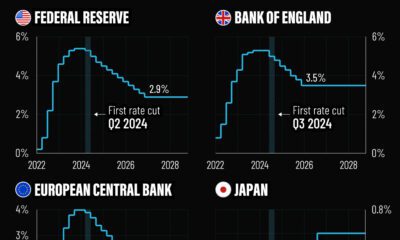
 Markets6 days ago
Markets6 days agoVisualized: Interest Rate Forecasts for Advanced Economies
-
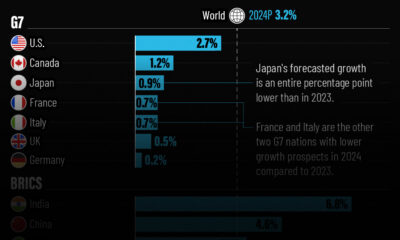
 Markets2 weeks ago
Markets2 weeks agoEconomic Growth Forecasts for G7 and BRICS Countries in 2024
-
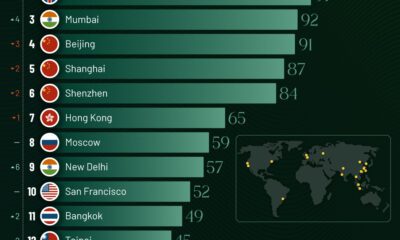
 Wealth2 weeks ago
Wealth2 weeks agoCharted: Which City Has the Most Billionaires in 2024?
-

 Technology2 weeks ago
Technology2 weeks agoAll of the Grants Given by the U.S. CHIPS Act
-

 Green2 weeks ago
Green2 weeks agoThe Carbon Footprint of Major Travel Methods
-

 United States1 week ago
United States1 week agoVisualizing the Most Common Pets in the U.S.
-

 Culture1 week ago
Culture1 week agoThe World’s Top Media Franchises by All-Time Revenue
-

 voronoi1 week ago
voronoi1 week agoBest Visualizations of April on the Voronoi App

